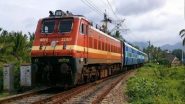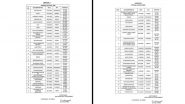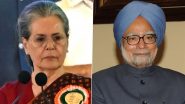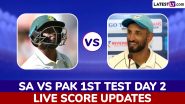Kathmandu, Nov 19 (PTI) Nepal will hold key national and provincial elections on Sunday in which the Nepali Congress-led ruling coalition is expected to emerge as the winner, but the outcome is unlikely to provide much-needed political stability in the Himalayan nation sandwiched between India and China.
More than 17.9 million people are eligible to vote in seven provinces across the country. The polling will start at 7 am local time and close at 5 pm.
Out of a total of 275 members of the federal Parliament, 165 will be elected through direct voting, while the remaining 110 will be elected through a proportional electoral system.
Similarly, out of a total of 550 members of the Provincial Assembly, 330 will be elected directly and 220 will be elected through the proportional method. The counting of the votes will begin soon after the polling ends but the final results can take a few days.
Nepal President Bidya Devi Bhandari on Saturday urged all people for their enthusiastic participation during the November 20 elections, stressing that voting is the highest exercise of civil rights.
Bhandari expressed her belief that the democratic system and institutions will gradually become more responsive to the people through the general elections conducted in a free, fair, fearless manner.
The elections will help establish good governance and transparency that the people are looking for, she pointed out, adding that the national goals of peace, stability and prosperity can be achieved through a healthy and vibrant democracy.
Political observers closely watching the elections have predicted a hung parliament and a government that is unlikely to provide the required political stability in Nepal.
Political instability has been a recurrent feature of Nepal's Parliament since the end of the decade-long Maoist insurgency, and no prime minister has served a full term after the civil war ended in 2006.
The frequent changes and fighting among parties have been blamed for a slow economy, amidst the Covid-19 pandemic.
There are two major political alliances fighting it out for the November 20 general elections - the Nepali Congress-led democratic and leftist alliance and the CPN-UML-led leftist and pro-Hindu-pro-monarchy alliance.
The Nepali Congress-led ruling alliance includes CPN-Maoist Centre, CPN-Unified Socialist, and Madhes-based Loktantrik Samajwadi Party while the CPN-UML-led alliance includes pro-Hindu Rastriya Prajatantra Party and Madhes-based Janata Samajwadi Party.
Current prime minister Sher Bahadur Deuba has formed an electoral alliance with former Maoist guerrilla leader Pushpa Kamal Dahal Prachanda against former premier K P Sharma Oli.
The next government will face challenges of keeping a stable political administration, reviving the tourism industry and balancing ties with neighbours-- China and India.
Over 22,000 polling centres have been set up for the elections in which 5,907 candidates are in the fray.
The Election Commission of Nepal has mobilised 276,000 staff for conducting the election in all 77 districts. Some 300,000 security personnel have been deployed to facilitate peaceful polling.
Nepal is ready to hold general elections in a free, fair and impartial manner, the election commission said on Saturday.
According to Chief Election Commissioner (CEC) Dinesh Kumar Thapalia, political parties and candidates have been following the code of conduct and thus created a conducive environment for the exercise.
Security has been stepped up in all districts across the country with air-patrolling around polling stations.
The Indo-Nepal border has been sealed for 72 hours before the polling day to prevent any untoward incidents.
Out of a total of 2,412 candidates contesting the election for federal Parliament, 867 are independents.
Among the major political parties, the Communist Party of Nepal- Unified Marxist–Leninist (CPN-UML) has fielded 141 candidates while the Nepali Congress and CPN-Maoist Centre have fielded 91 and 46 candidates respectively.
The Nepali Congress led by Deuba, a five-time premier, in its election manifesto promised to maintain good governance, accountability, transparency and financial discipline if it wins the election.
The party has also assured to generate 1.25 million jobs for the youths in the next five years and provide skill development training and career-oriented education to generate more employment opportunities and to encourage people to self-employment.
The party aims to resolve border issues through dialogue and diplomatic efforts while giving high priority to neighbours in foreign policy.
The coalition government is needed for another five years for maintaining political stability, argues the party.
Nobody will die of hunger and job and earnings will be ensured for all, if our party wins the election, claims the CPN-UML, led by former premier KP Sharma Oli, in its manifesto.
While pursuing free and balanced international relations, the party aims to develop friendly relations with the international community by giving priority to relations with neighbours.
It also promises to get back the three territories of Kalapani, Lipulekh and Limpiyadhura from India if it comes to power.
The CNP (Maoist Centre) gives top priority to good governance, transparency, checking corruption and digitising government offices in its manifesto.
"We will maintain cordial friendly and close relations with both the neighbours (China and India) keeping in view the geopolitical situation and will not take part in any type of multilateral or bilateral military groupings," says the party.
Sustainable economic growth, quality education and health, and poverty reduction are the major agenda for pro-Hindu and pro-monarchy Rastriya Prajatantra Party.
Under its political agenda, the party campaigns for a directly elected executive Prime Minister, reinstating ceremonial monarchy and revival of the Hindu state along with religious freedom.
"We accept friendship with all but never accept any type of foreign interference," says the party in its manifesto.
(This is an unedited and auto-generated story from Syndicated News feed, LatestLY Staff may not have modified or edited the content body)













 Quickly
Quickly
















